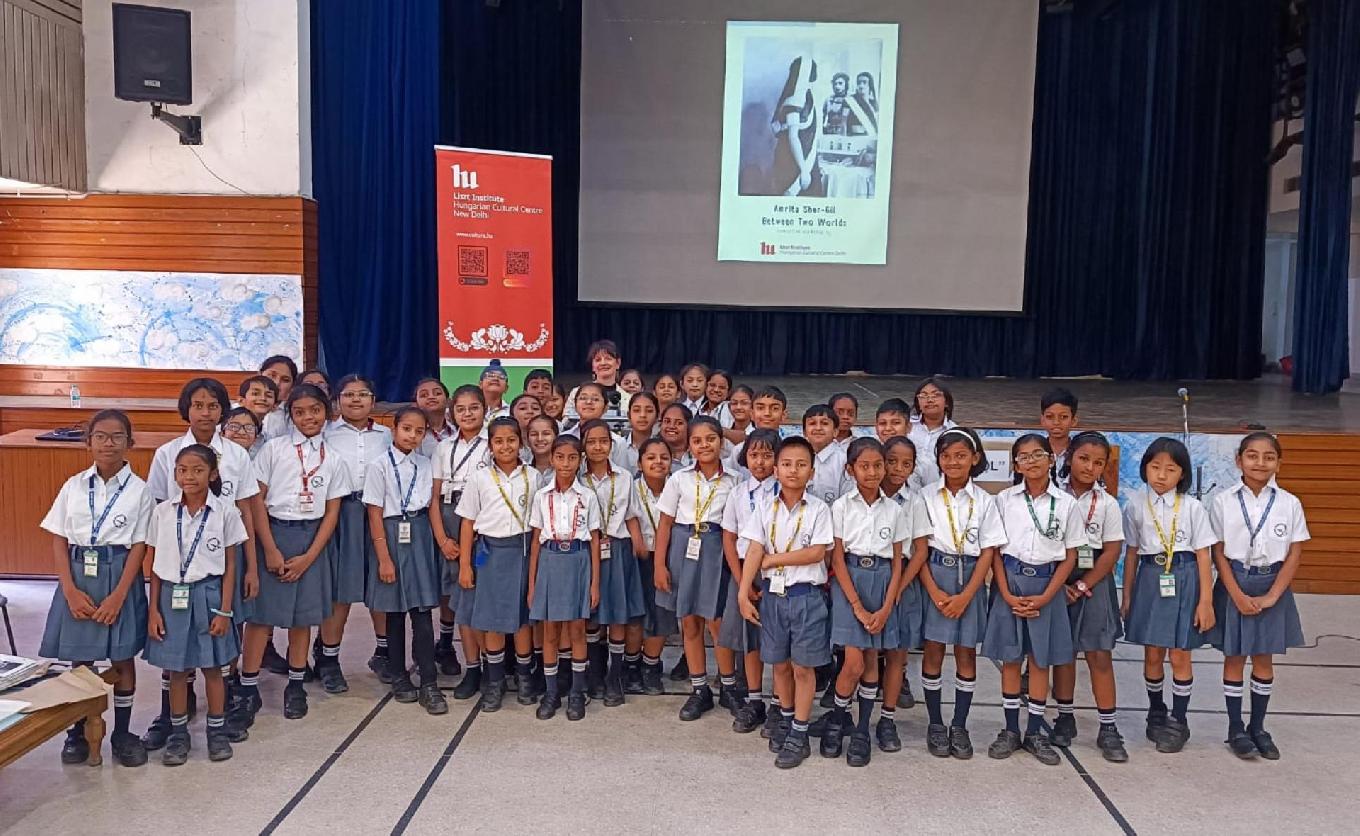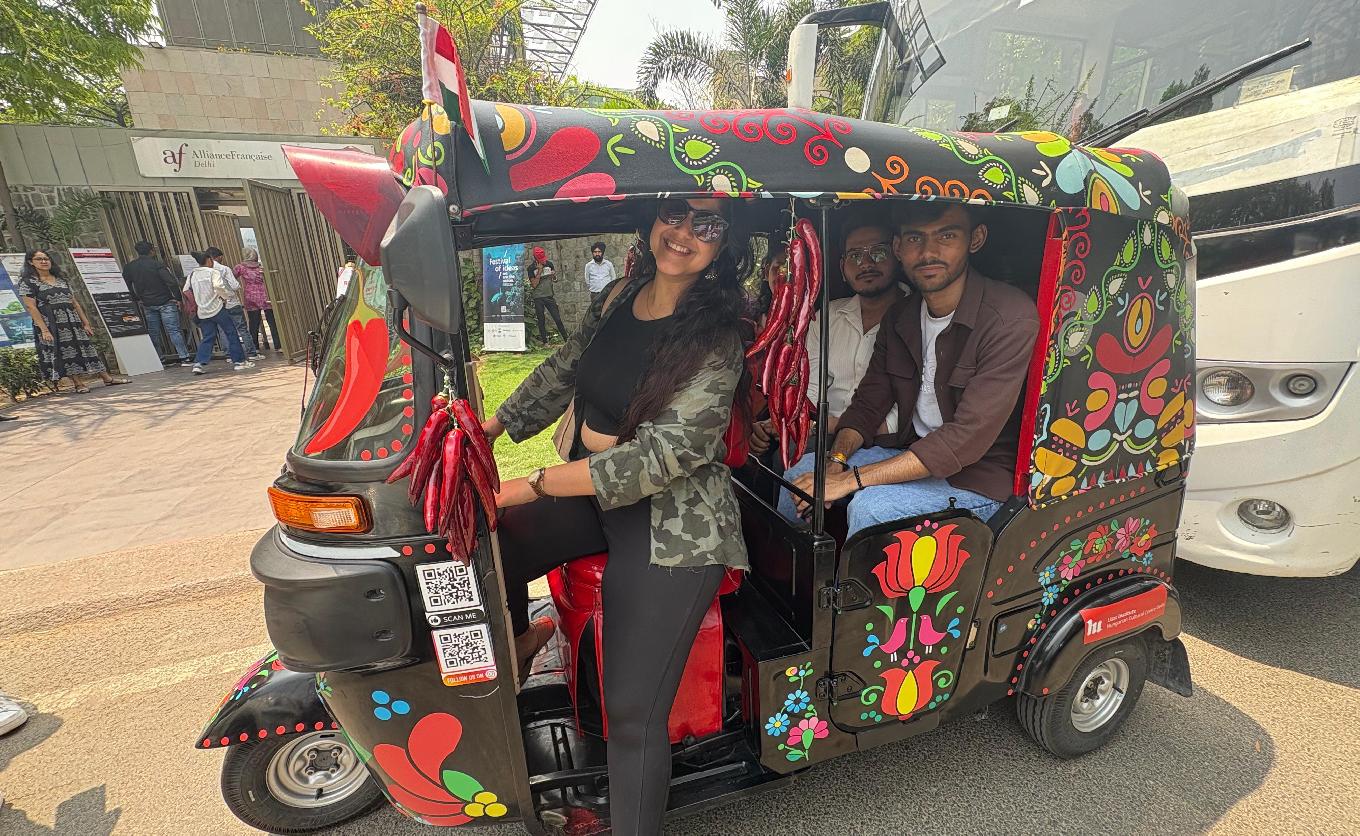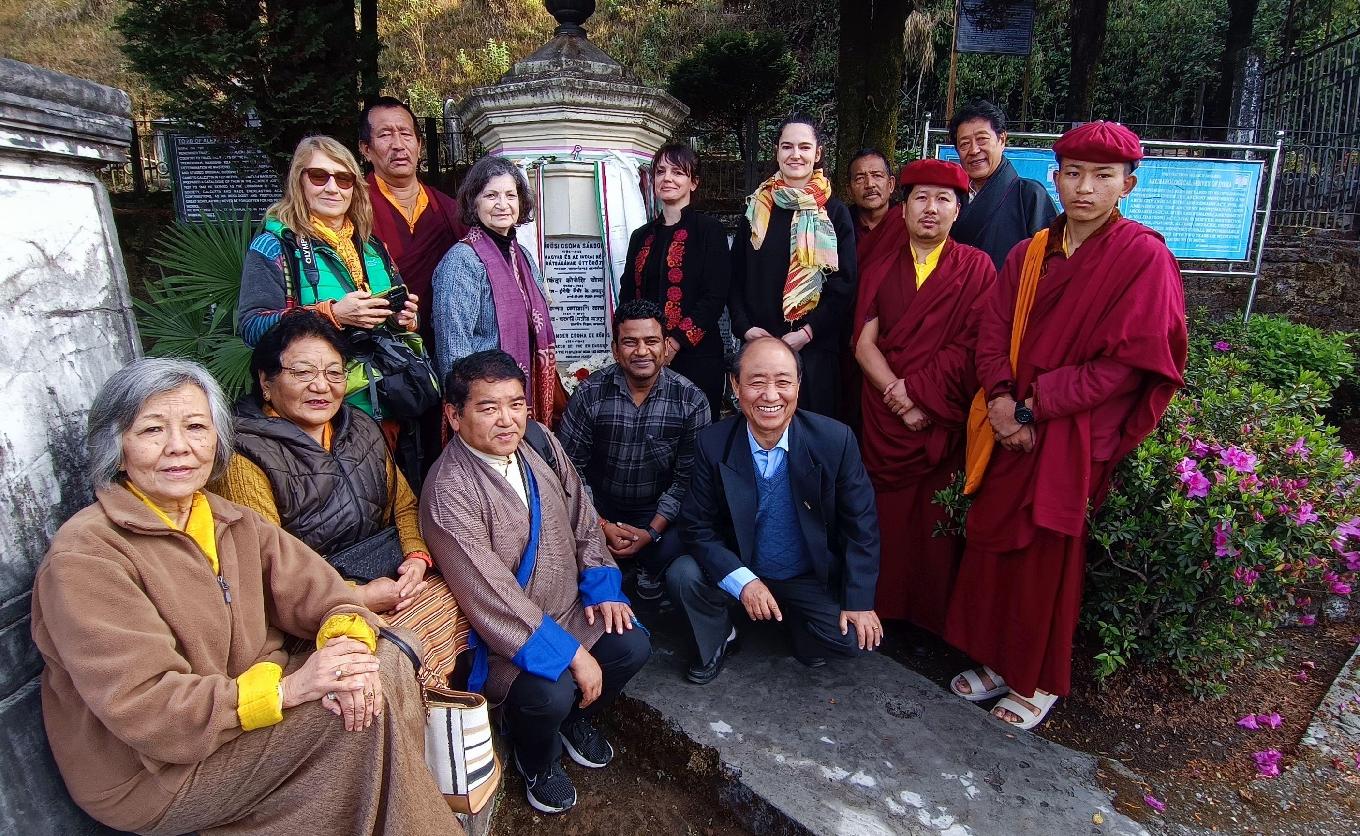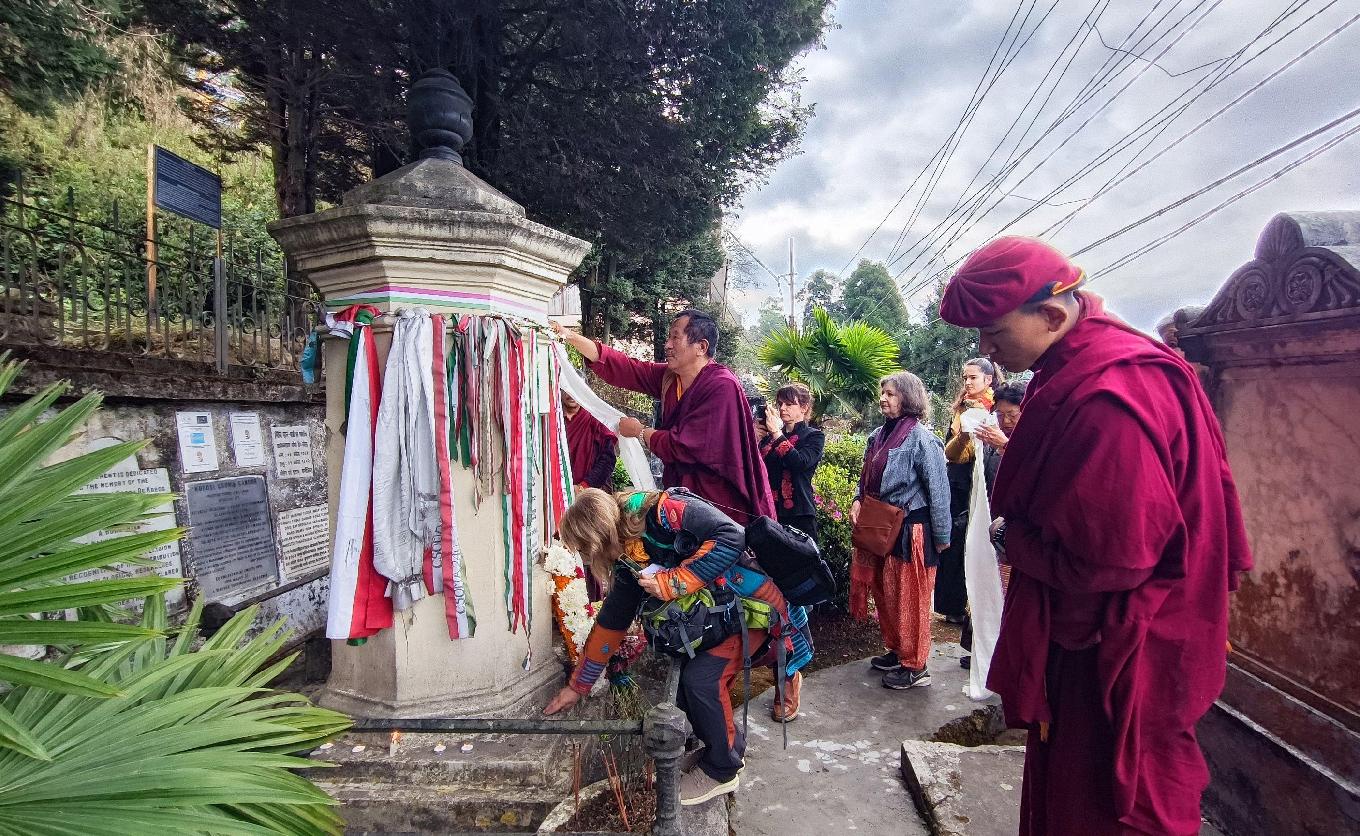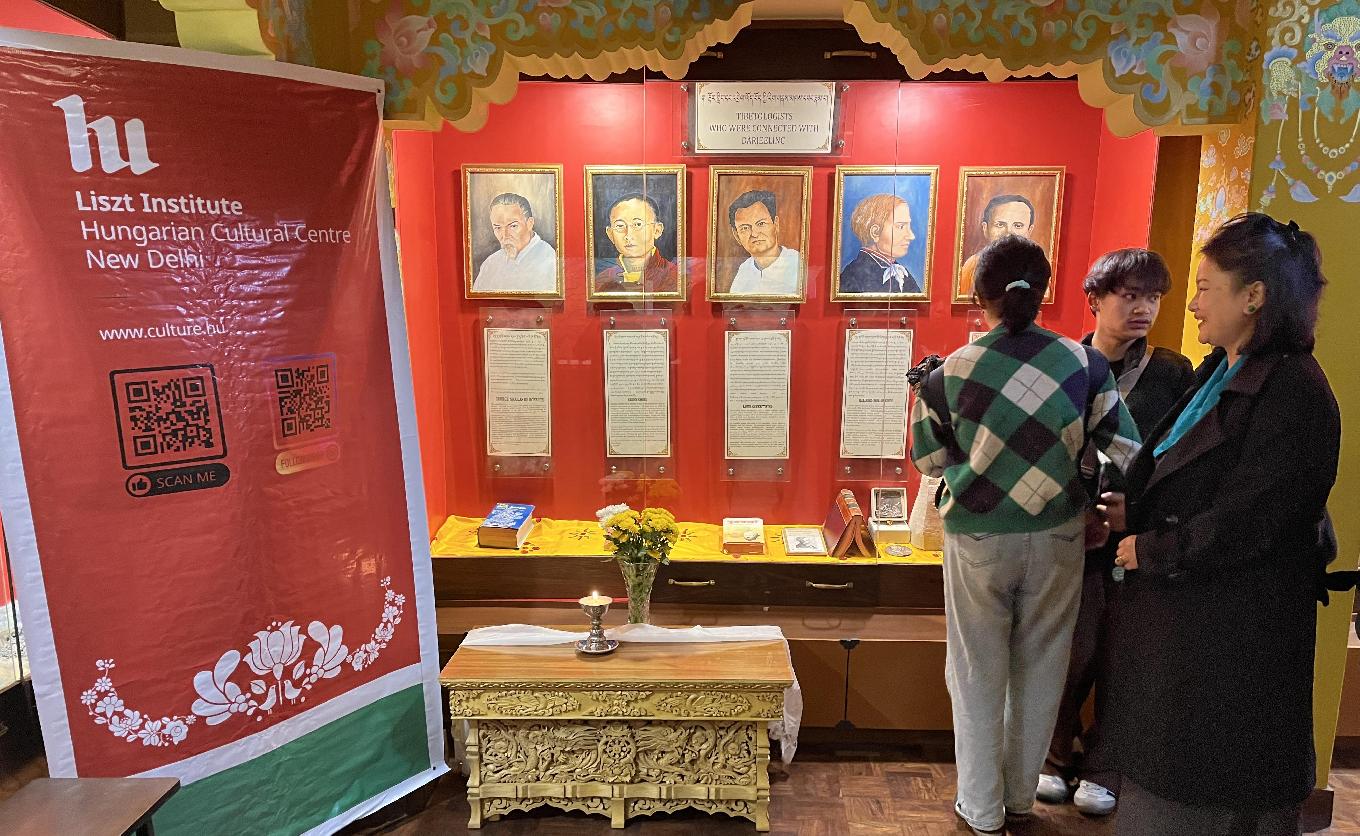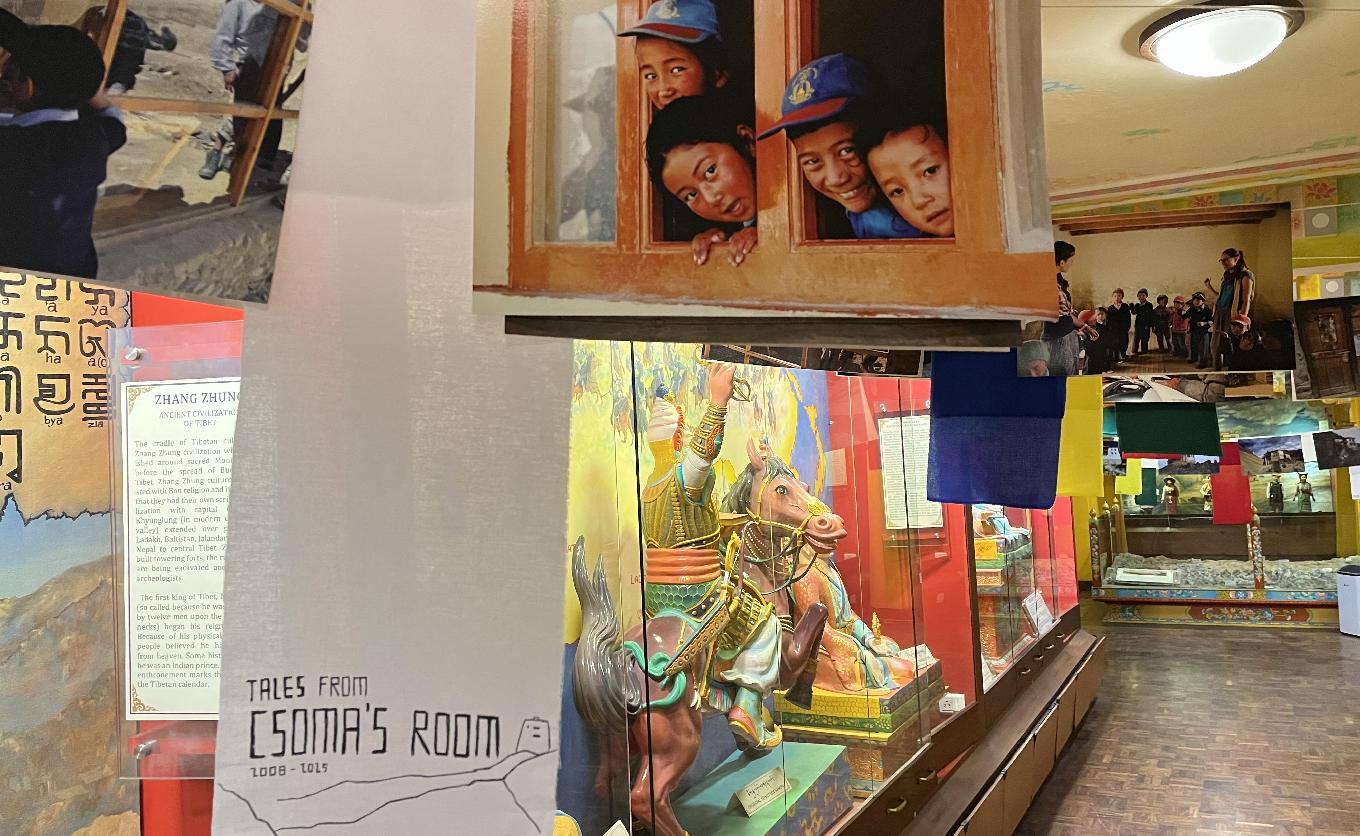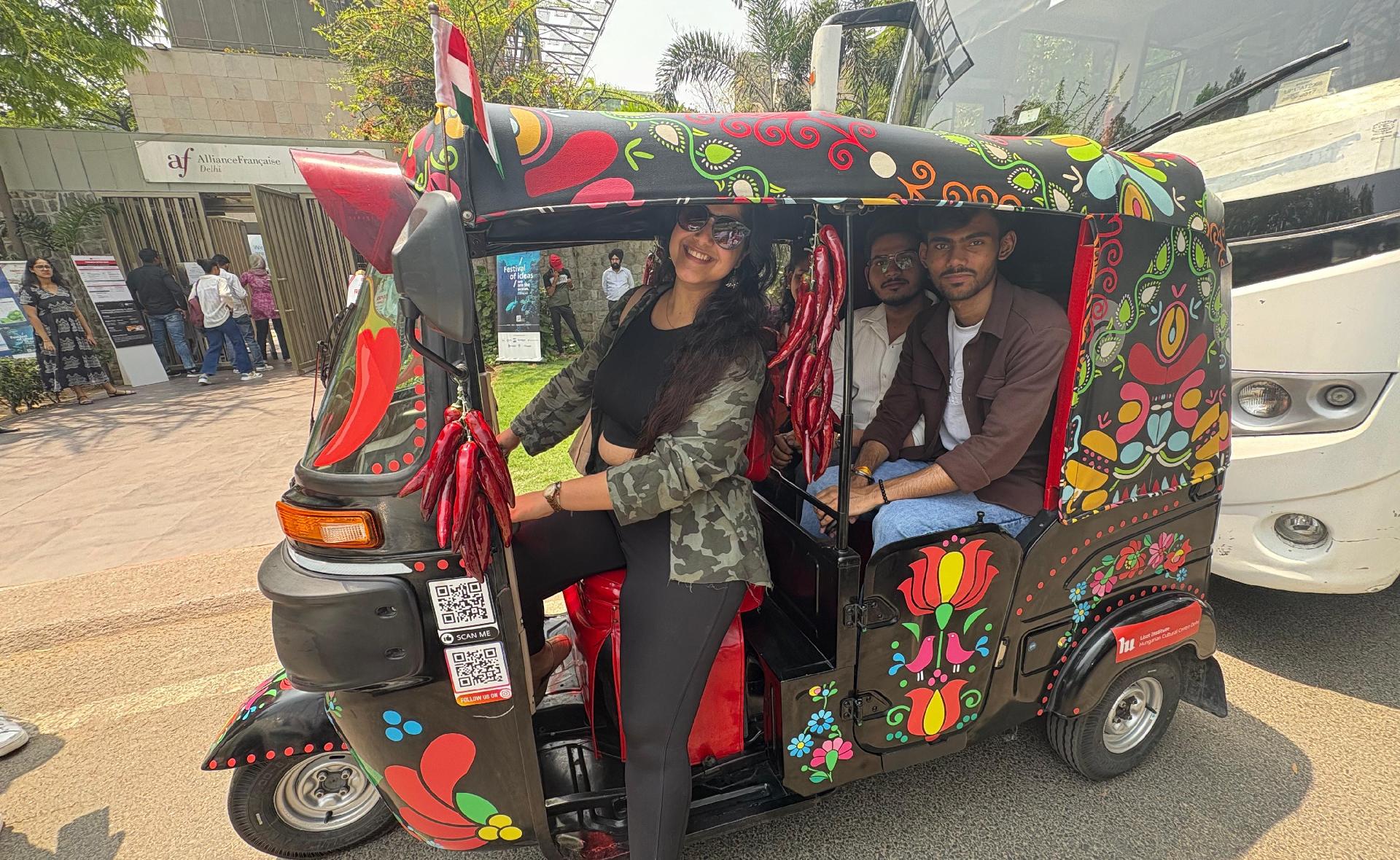
Large-Scale Commemorations, Perfume-Making, and Culinary Walks in India
The Liszt Institute Delhi organized a number of outstanding Hungarian cultural programs across India. A series of large-scale commemorations was held in Darjeeling in honor of Sándor Kőrösi Csoma, followed by a perfume-making session with visitors to mark the occasion of an exhibition dedicated to Amrita Sher-Gil, the Indian-Hungarian painter. As part of their “Amrita 112” project, children at the Father Agnel Catholic School were introduced to the artist’s work, while students at India’s leading hospitality university got a taste of Hungarian cuisine by learning the secrets of goulash soup making, thanks to the Institute. On May 9, during Europe Day, with Hungarian cultural events alongside gastronomic delicacies.
The Liszt Institute Delhi held a grand series of events in Darjeeling to commemorate the anniversary of Sándor Kőrösi Csoma’s death on April 11. The celebration began at Csoma’s grave in the Old Cemetery of Darjeeling, with participants including staff from the Institute, Hungarian guest lecturer Margit Köves, members of the city’s Tibetan Cultural Center, and monks from the Dali Monastery, who also conducted a Buddhist ceremony at the memorial site. Mariann Erdő, the director of the Institute, also paid tribute to the nearly simultaneous commemoration organized by the Kőrösi Csoma Association of Covasna in the scholar’s birthplace, Csomakőrös. Afterwards, Anna Fehér, a volunteer from the Csoma’s Room Foundation, spoke at the Manjushree Tibetan Cultural Centre about the activities of the foundation and the renovation of the room in the Royal Palace in Zangla, where Csoma compiled his main work, the Tibetan-English Dictionary, in 1823. Through Anna Fehér’s interpretation, the audience not only learned about the history of the room but also gained insight into everyday life in the Ladakhi village and the foundation’s broader activities in education and environmental protection, beyond the restoration efforts. Anna’s narrative carried special authenticity, as during her volunteering, she met and later married the son of the king of Zangla. As part of the commemorative series of events, a photo exhibition featuring images from the Csoma’s Room Foundation also opened at the Himalayan Tibet Museum in Darjeeling, which will be on display for a year.
As part of the exhibition titled “A Hungarian-Indian Artistic Family: Master and Disciple”, which opened on January 31, an event was held on April 8 for Delhi-based influencers. During the program, the invited guests first visited the Amrita Sher-Gil and Nicholas Roerich exhibition, after which they created their own perfumes, inspired by the artworks they had seen. At the request of the United Nations Women Association (UNWA) in Delhi, Mariann Erdő, the director of the Institute, led a guided tour of the exhibition. Through more than 130 photographs, 8 original paintings by Amrita Sher-Gil, and the stories behind them, Hungary, British India and Paris in the early 20th century were brought to life for the participants.
As part of the AMRITA112 project, the Institute visited Father Agnel Catholic School with its interactive program titled “Amrita Goes to School”, where children had the opportunity to learn about the life of the Indian-Hungarian painter Amrita Sher-Gil.
This spring, the Liszt Institute Delhi once again visited the Indian School of Hospitality/Ecole Ducasse, India’s leading institution for hospitality education. The first-year students were introduced to Hungarian history, traditions, and culture by the Institute’s director, Mariann Erdő, through the story of goulash. While the jointly prepared goulash soup was simmering in the pot, students competed for prizes from the Institute by participating in a quiz, “goulash bingo,” and a “Spot the difference” challenge.
The Europe in Motion project was launched as a joint initiative of the Delhi EUNIC cluster countries and the EU Delegation to India. As part of the project, on Europe Day on 9 May, all 11 participating countries hosted registered visitors at individual venues. At 11 a.m., a rented EU bus and a Hungarian tuk-tuk transported participants to the Liszt Institute Delhi. The institute, together with Malta, welcomed the visitors with goulash and Maltese beer. The more than 150 participants watched a short film about Amrita Sher-Gil made by the Institute and then had the opportunity to answer questions in a quiz. Before the goulash tasting, another thematic video was screened, also accompanied by a quiz. After the informal conversations and goulash tasting, the next stop awaited participants at the Goethe-Institut in cooperation with Ukraine. The final stop of the event was the Austrian Embassy in Delhi, where the Mozart Choir performed. Afternoon refreshments were provided by the Portuguese, Italian, and Polish cultural institutes.

